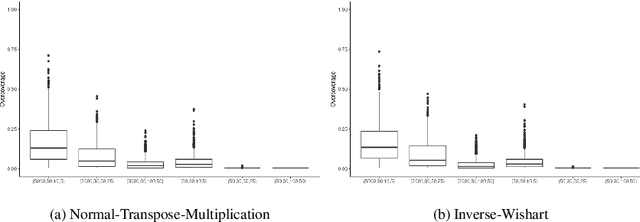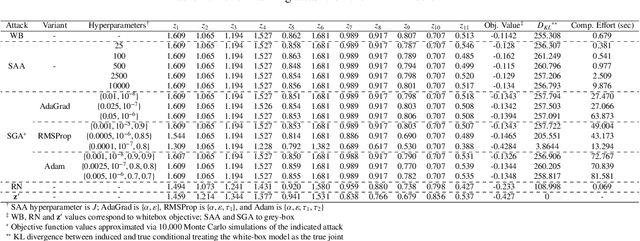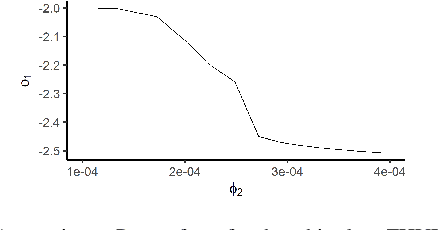Matthew LaRosa
Indiscriminate Disruption of Conditional Inference on Multivariate Gaussians
Nov 21, 2024



Abstract:The multivariate Gaussian distribution underpins myriad operations-research, decision-analytic, and machine-learning models (e.g., Bayesian optimization, Gaussian influence diagrams, and variational autoencoders). However, despite recent advances in adversarial machine learning (AML), inference for Gaussian models in the presence of an adversary is notably understudied. Therefore, we consider a self-interested attacker who wishes to disrupt a decisionmaker's conditional inference and subsequent actions by corrupting a set of evidentiary variables. To avoid detection, the attacker also desires the attack to appear plausible wherein plausibility is determined by the density of the corrupted evidence. We consider white- and grey-box settings such that the attacker has complete and incomplete knowledge about the decisionmaker's underlying multivariate Gaussian distribution, respectively. Select instances are shown to reduce to quadratic and stochastic quadratic programs, and structural properties are derived to inform solution methods. We assess the impact and efficacy of these attacks in three examples, including, real estate evaluation, interest rate estimation and signals processing. Each example leverages an alternative underlying model, thereby highlighting the attacks' broad applicability. Through these applications, we also juxtapose the behavior of the white- and grey-box attacks to understand how uncertainty and structure affect attacker behavior.
AI Enabled Maneuver Identification via the Maneuver Identification Challenge
Nov 28, 2022



Abstract:Artificial intelligence (AI) has enormous potential to improve Air Force pilot training by providing actionable feedback to pilot trainees on the quality of their maneuvers and enabling instructor-less flying familiarization for early-stage trainees in low-cost simulators. Historically, AI challenges consisting of data, problem descriptions, and example code have been critical to fueling AI breakthroughs. The Department of the Air Force-Massachusetts Institute of Technology AI Accelerator (DAF-MIT AI Accelerator) developed such an AI challenge using real-world Air Force flight simulator data. The Maneuver ID challenge assembled thousands of virtual reality simulator flight recordings collected by actual Air Force student pilots at Pilot Training Next (PTN). This dataset has been publicly released at Maneuver-ID.mit.edu and represents the first of its kind public release of USAF flight training data. Using this dataset, we have applied a variety of AI methods to separate "good" vs "bad" simulator data and categorize and characterize maneuvers. These data, algorithms, and software are being released as baselines of model performance for others to build upon to enable the AI ecosystem for flight simulator training.
 Add to Chrome
Add to Chrome Add to Firefox
Add to Firefox Add to Edge
Add to Edge